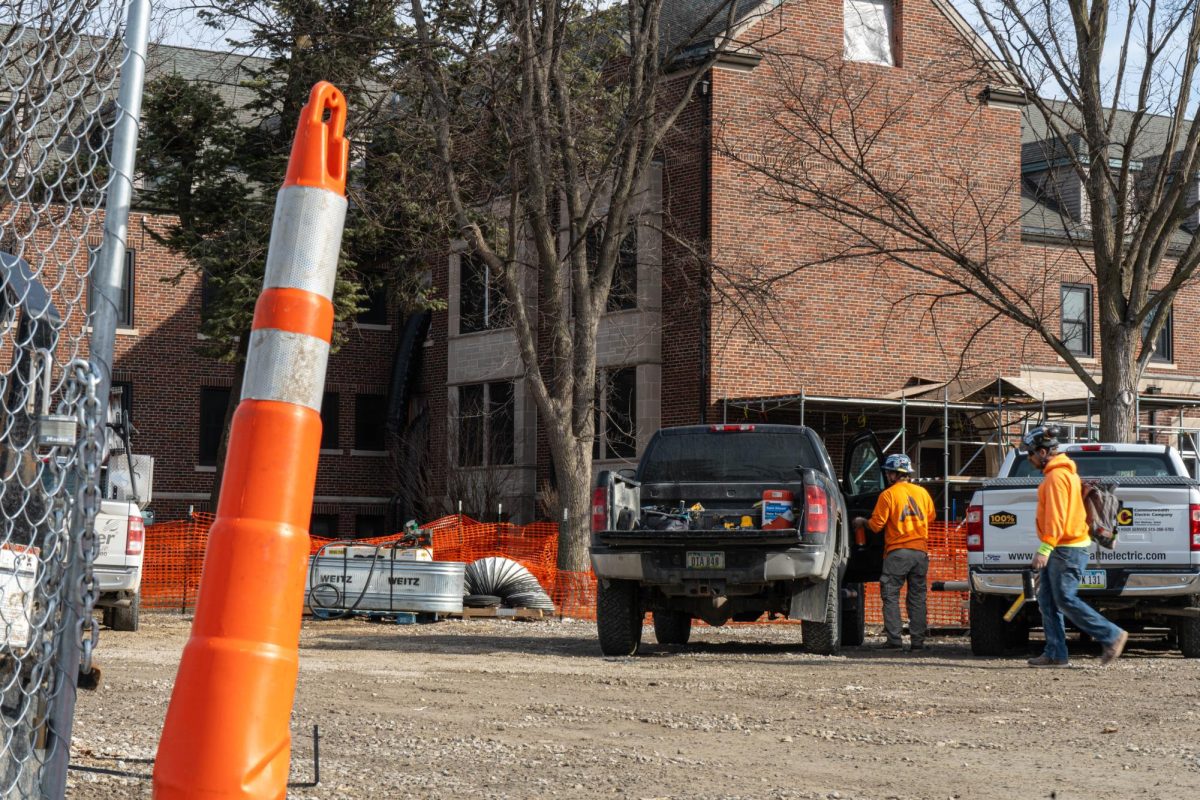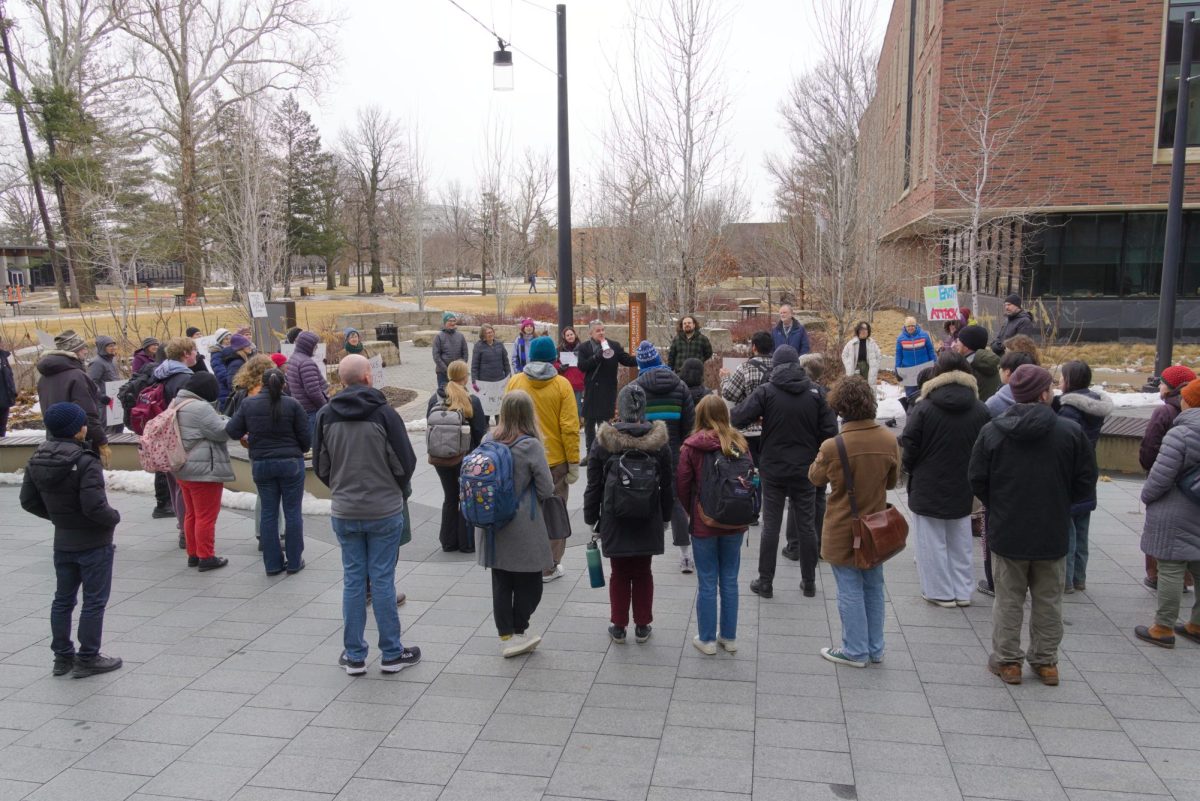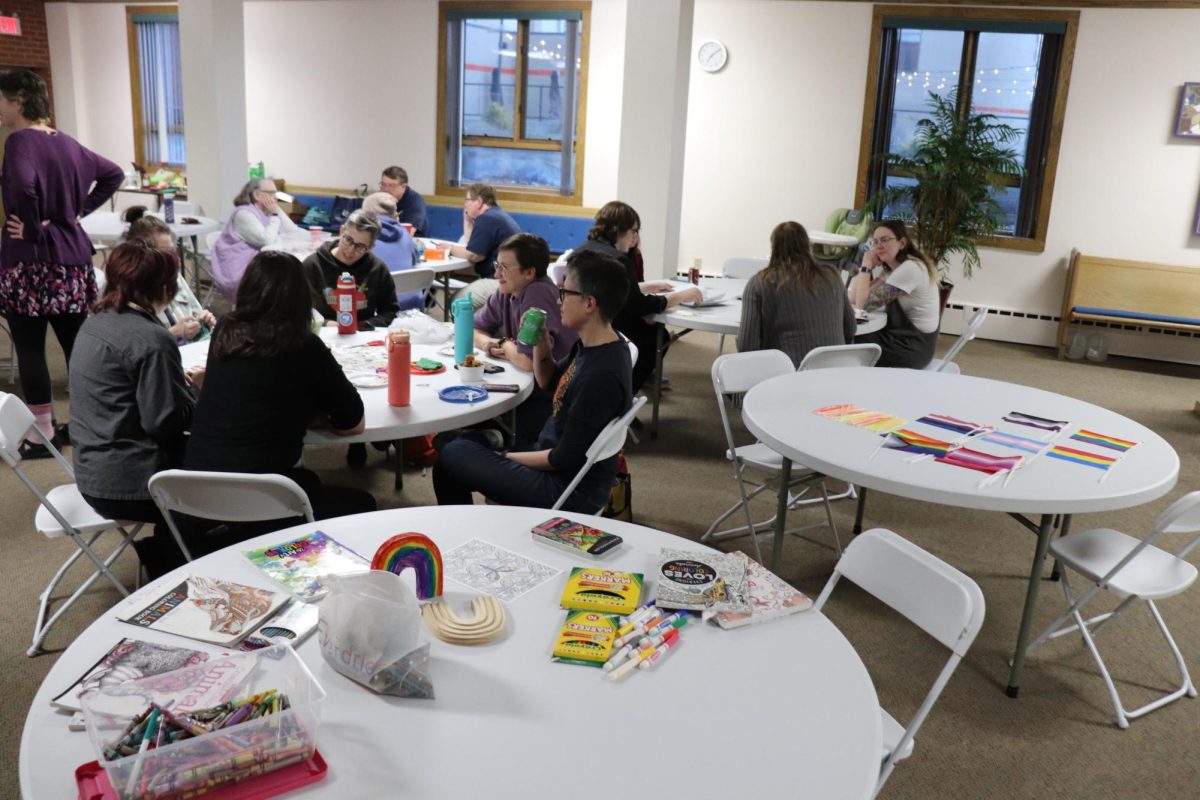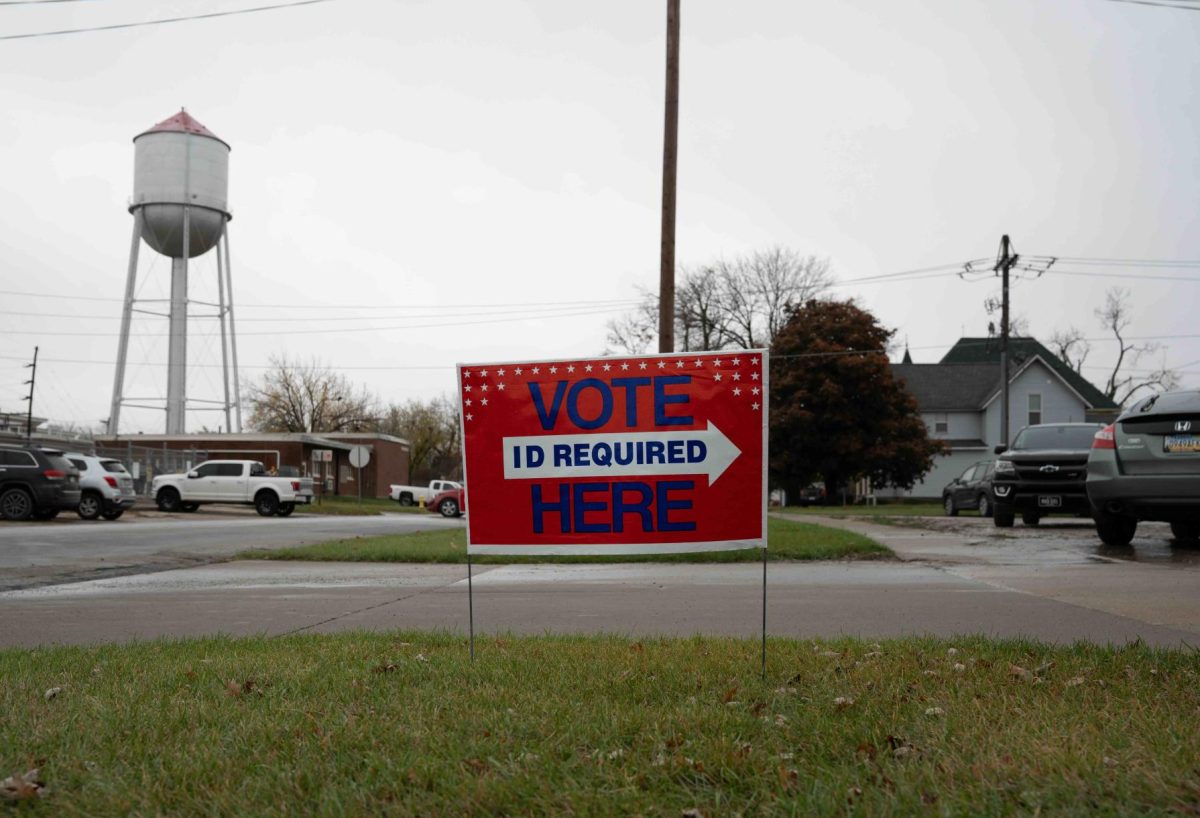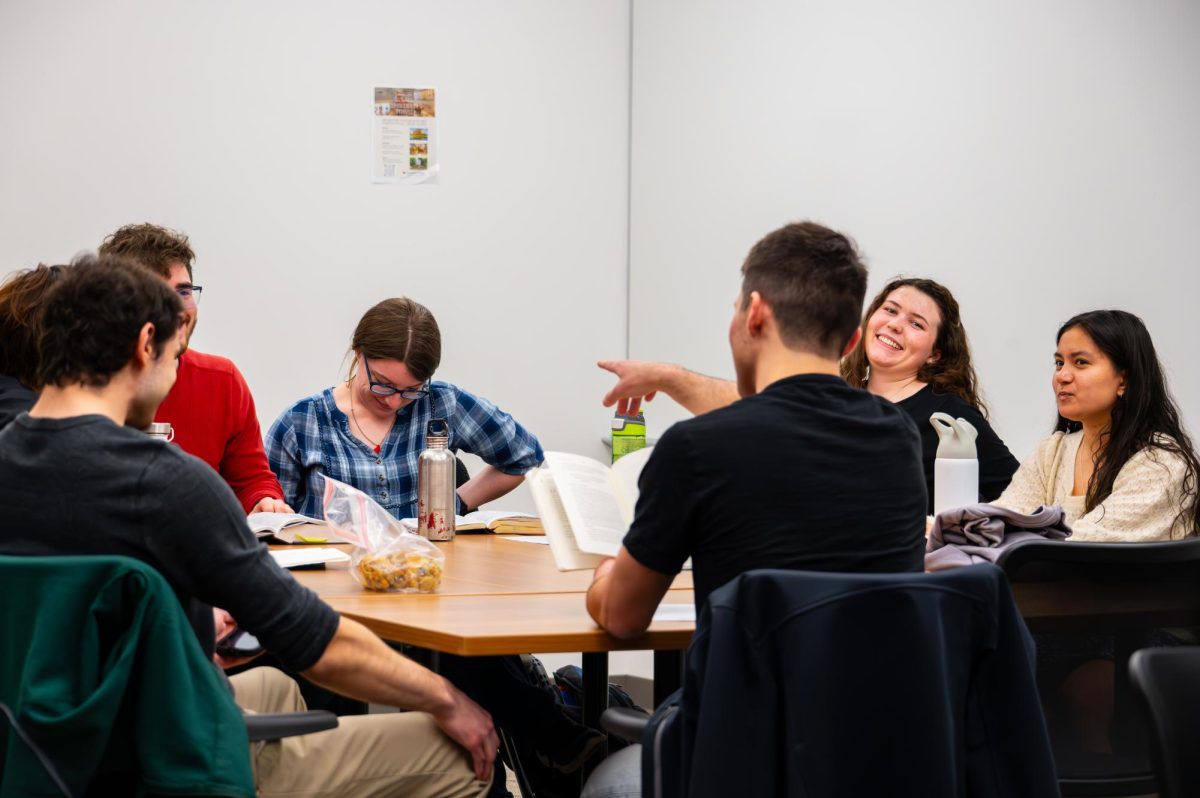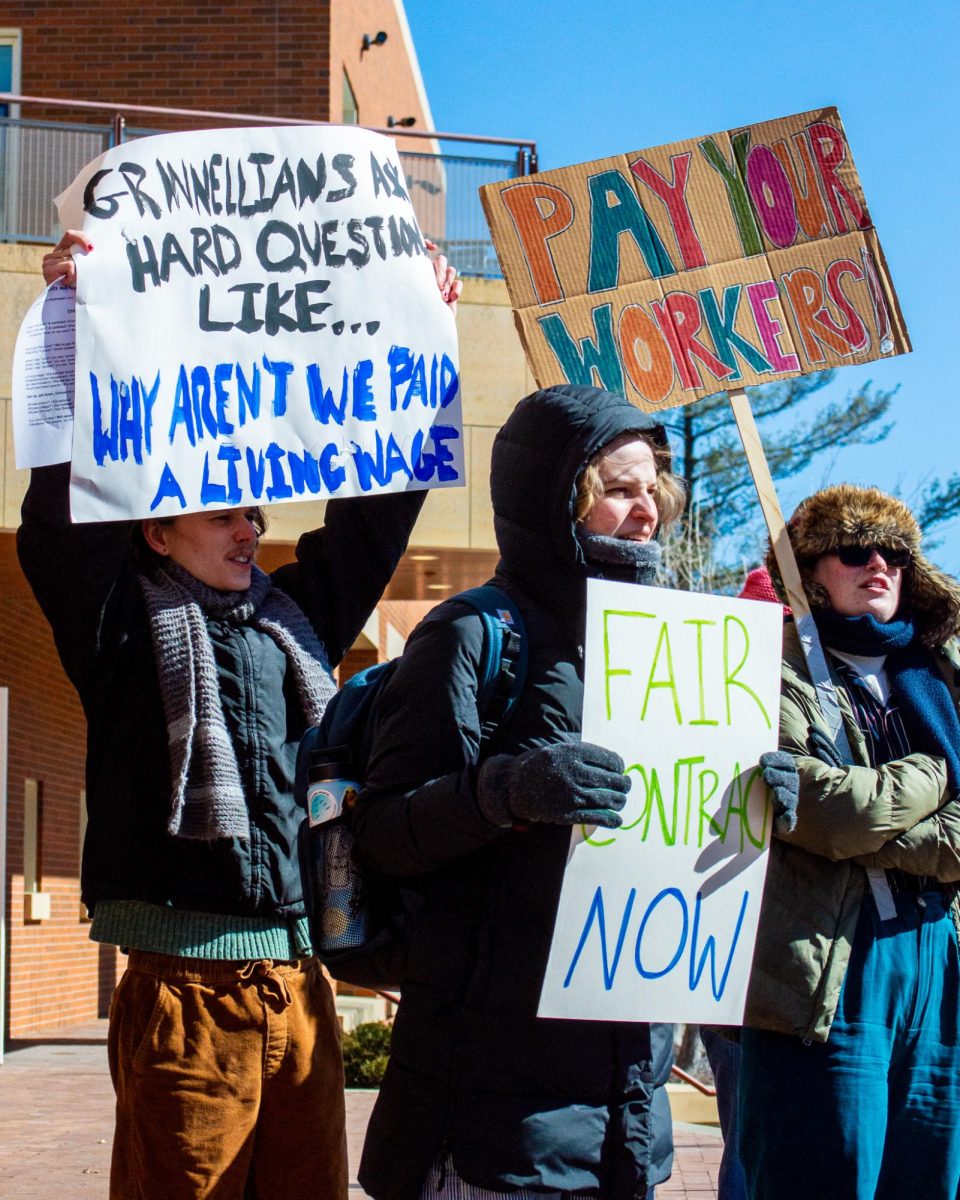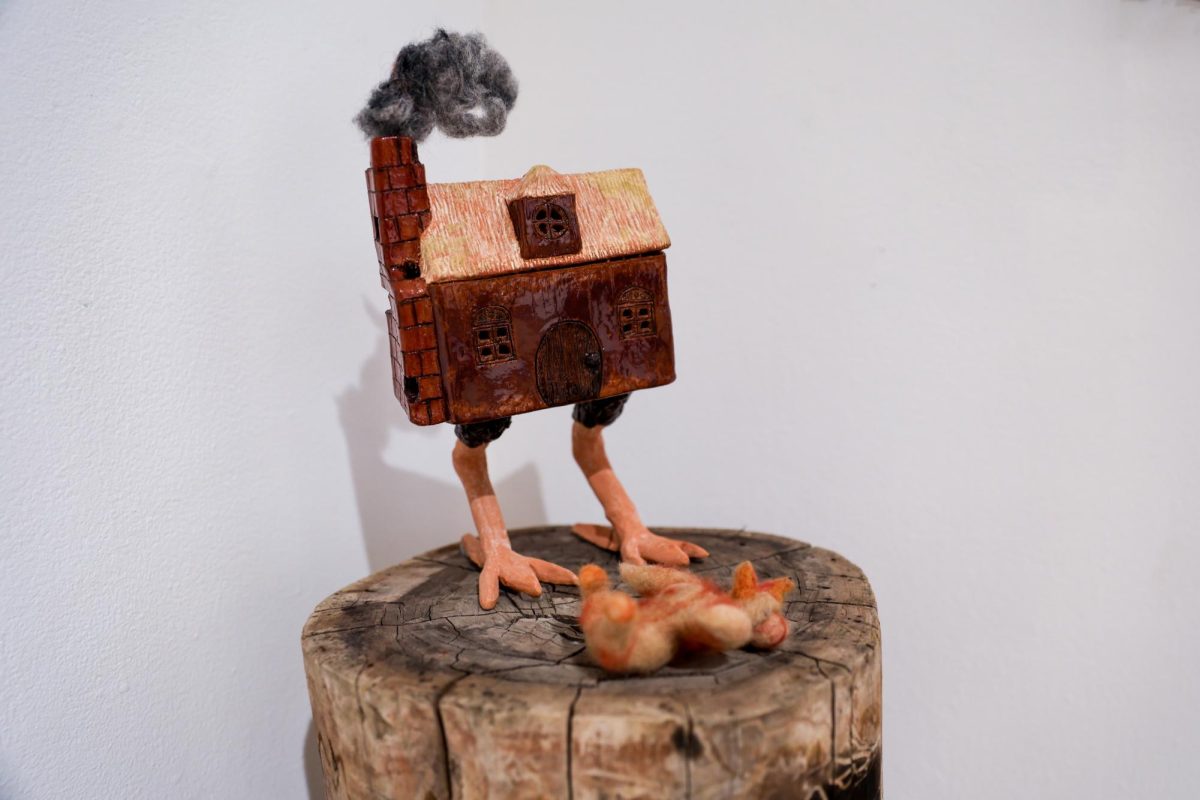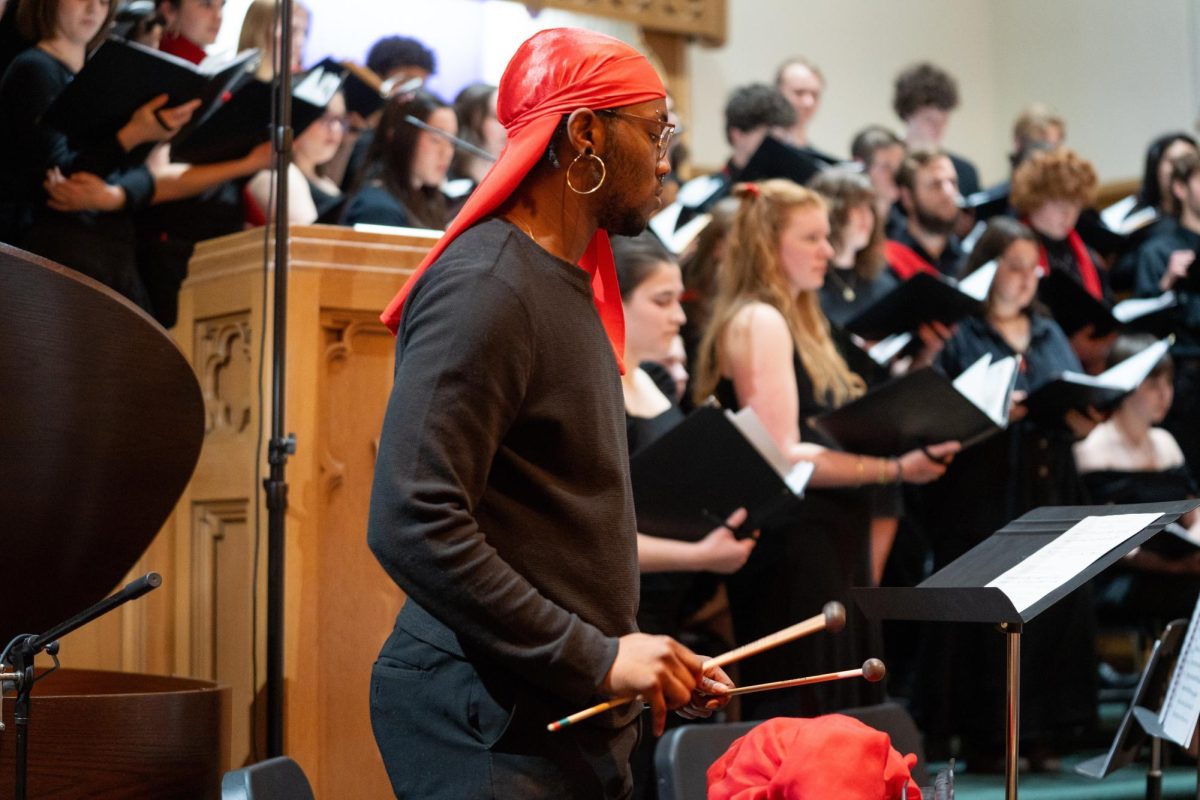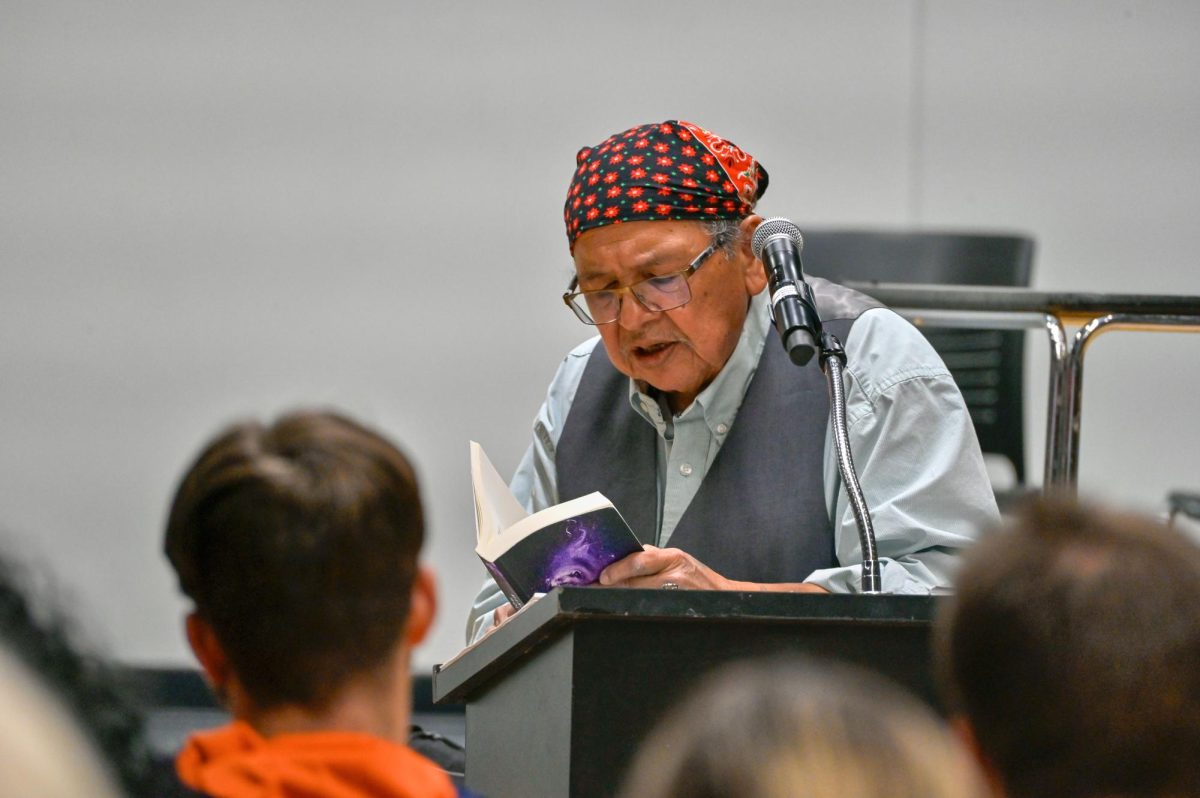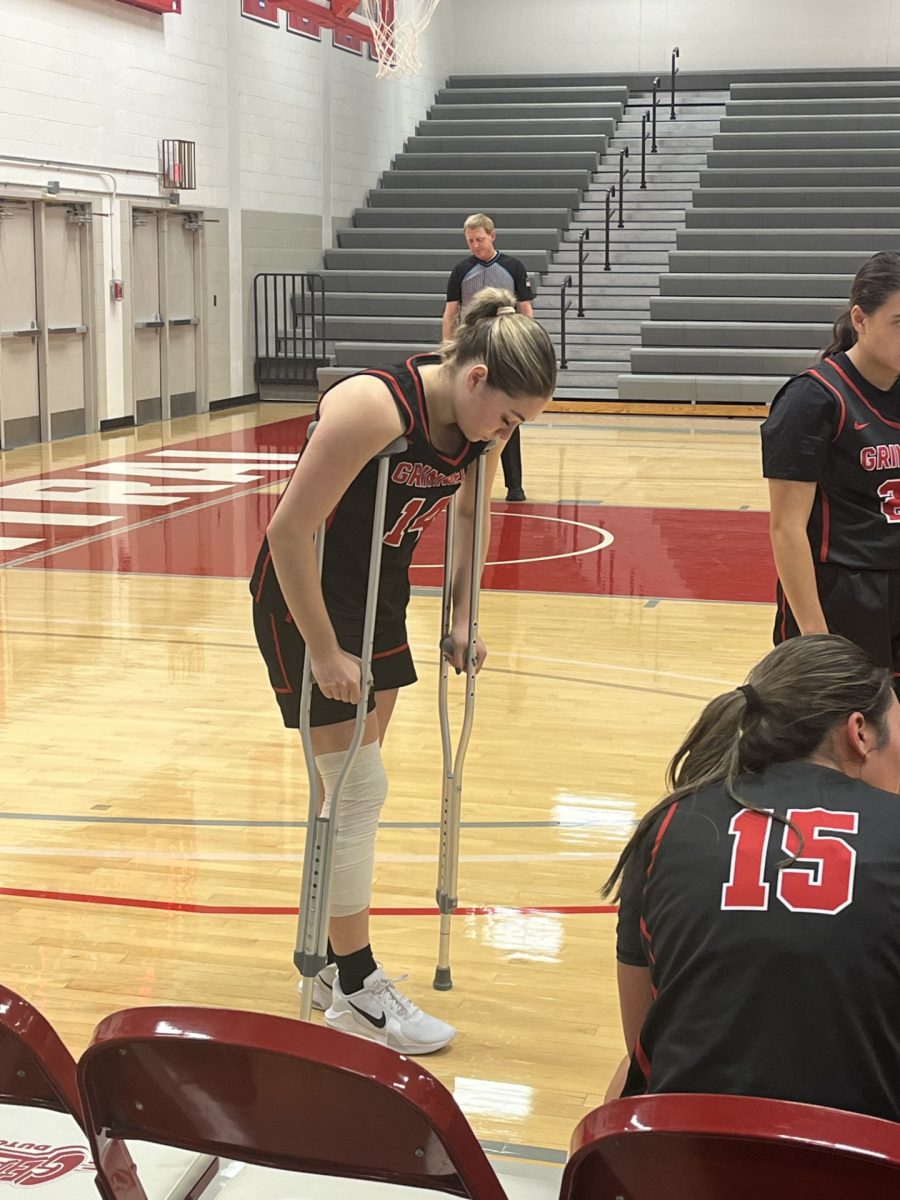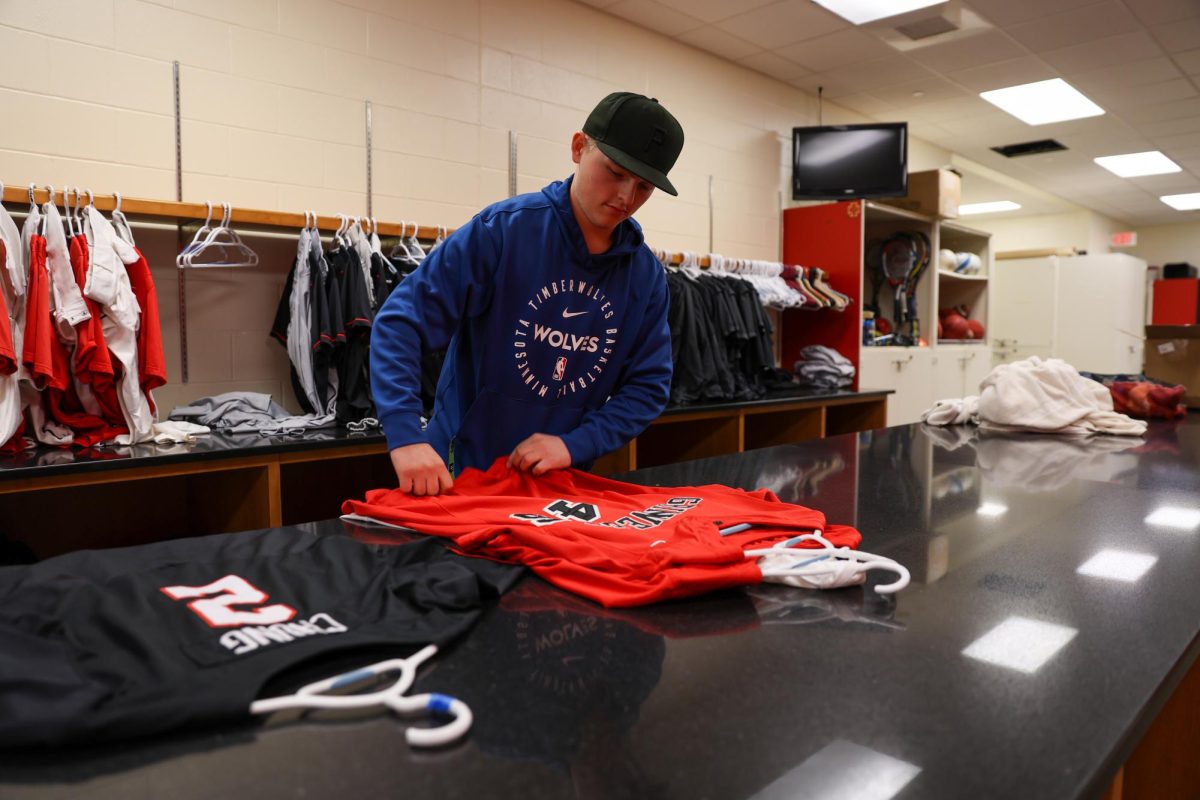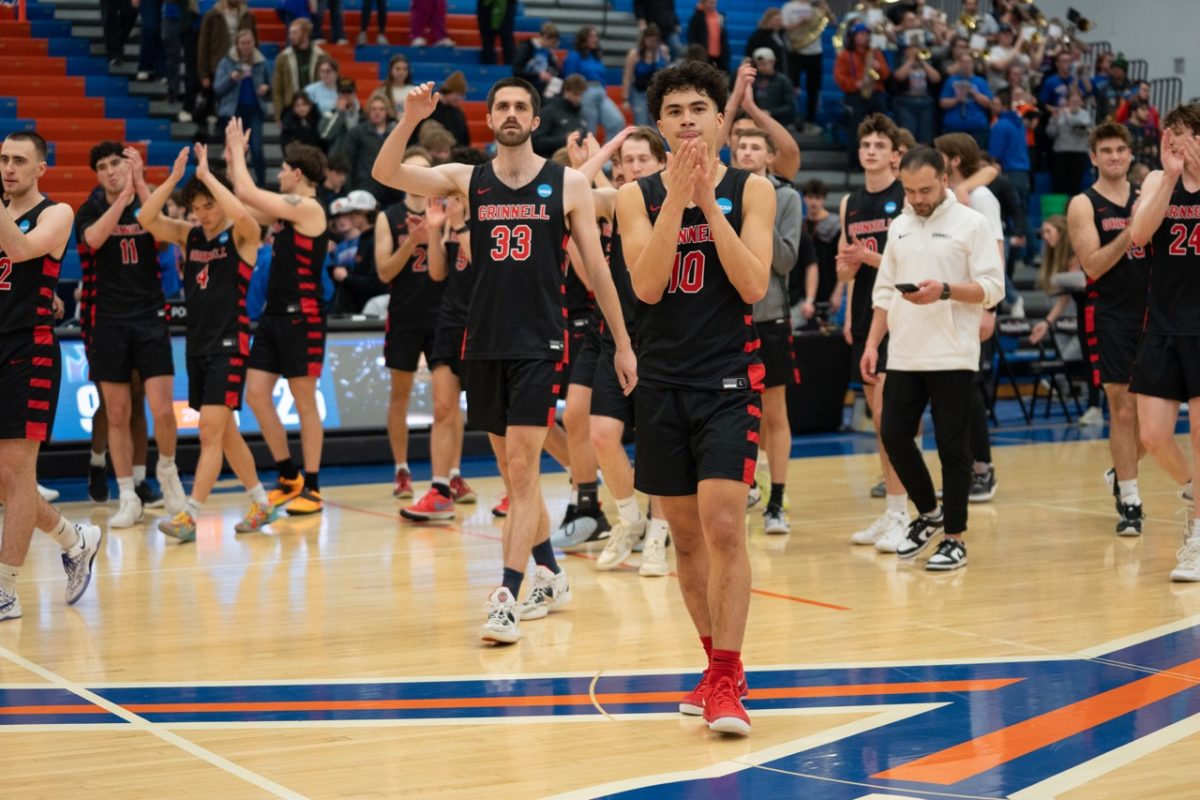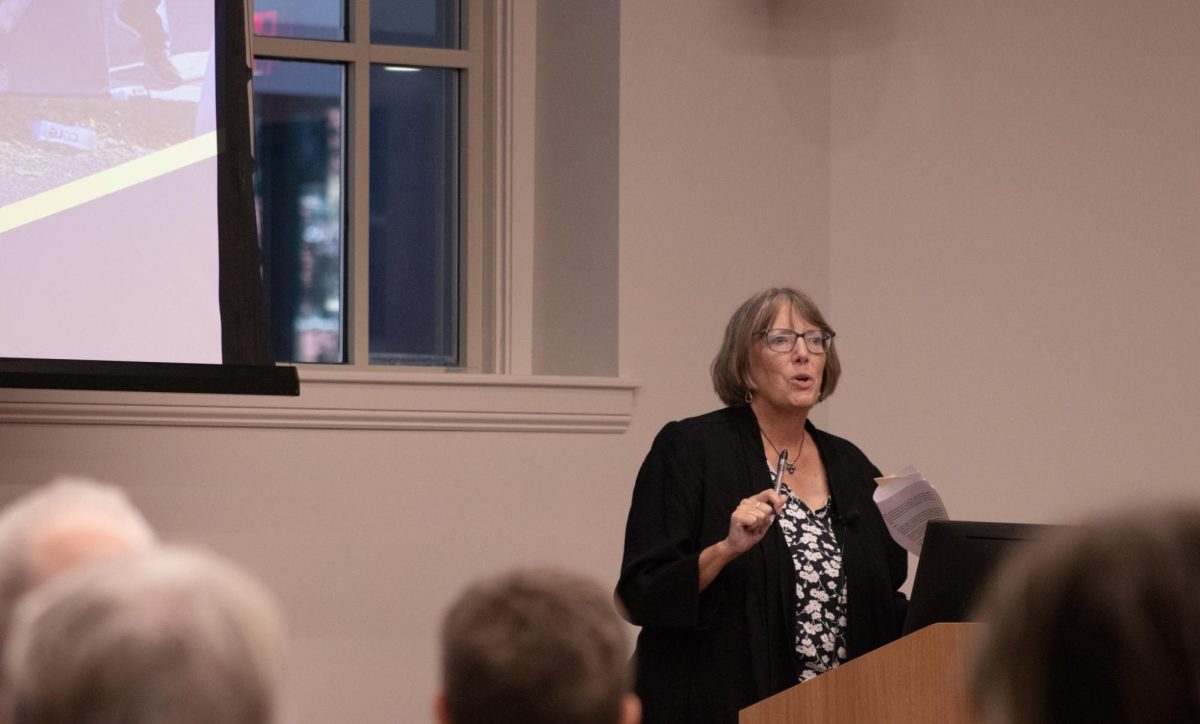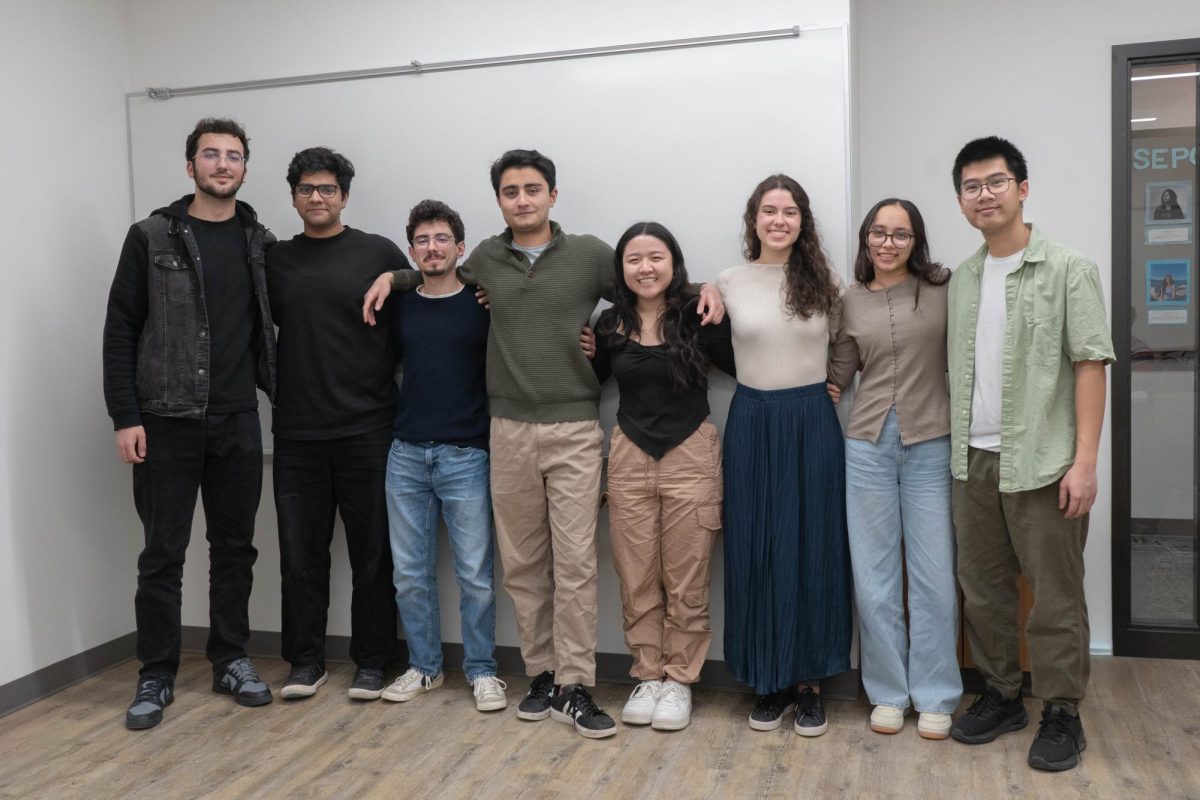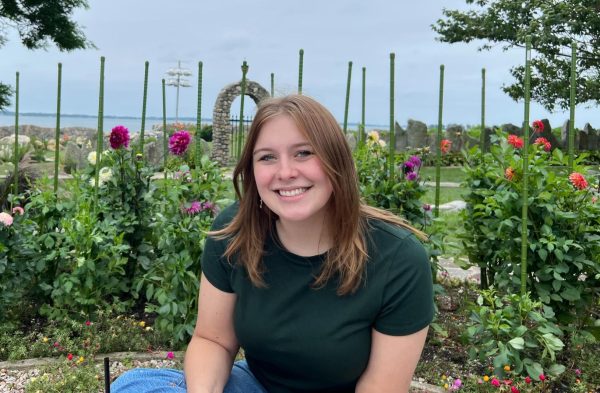Kathie Obradovich spoke about the problems politics cause in the Iowa Judiciary, as part of the Rosenfield Program symposium.
On Wednesday, Oct. 3, Obradovich concluded the Rosenfield Program symposium on courts in the U.S. with a talk about the importance of judicial independence in Iowa. Obradovich has covered Iowa politics and government for over 30 years, including 16 years at the Des Moines Register, where she worked as a political columnist, political editor and opinion editor. In January 2020, Obradovich helped to launch the Iowa Capital Dispatch through the States Newsroom project, a business model that supports staff at newspapers in 36 states.
The Dispatch, Obradovich said, “was launched essentially to fill gaps in coverage of especially statehouse politics.” Its staff includes reporters specifically covering agriculture and the environment, higher education and government and legislature.
Barbara Trish, professor of political science and director of the Rosenfield Program, said she began planning for the Symposium on U.S. Courts last November. She said, “even then it was clear that there was a newfound interest in the courts in the U.S.,” especially since the Supreme Court overturned Roe v. Wade and some justices have been criticized for conflicts of interest.
Trish said that while the first three speakers for the symposium provided a broader outlook on issues like legitimacy and ethics in the U.S. judicial system, Obradovich offered a perspective closer to home. Before the talk, Trish said that Obradovich would “fill us in on the ins and outs of what’s happening politically in a way that escapes most of us, even if we’ve been around it.”
During her talk, Obradovich focused on what she said were recent developments that “for the first time in a decade could affect the independence of judges and the impartiality of courts.” Obradovich said she has reported on Iowa courts since the 2009 Varnum v. Brien decision made Iowa the third state in the U.S. to establish gay marriage equality. After this ruling, three Iowa Supreme Court justices were voted out of office in retention elections — according to Obradovich, a rare event.
The Varnum ruling, said Obradovich, “first brought a very political element into how people were viewing judicial selection and retention.”
Ten years after the Varnum decision, Judge David Baker complained about the politicization of judicial elections. “The retention election that we were involved in was primarily funded by out-of-state money,” he said. Moreover, he noted that “it wasn’t simply to get rid of us [judges.] It was to send a message to judges around the country.”
Obradovich detailed other examples of how politics has affected the Iowa judiciary. By 2019, Iowa Governor Kim Reynolds had appointed the majority of members of judicial nominating commissions and appellate judges. And although last year’s state budget increased funds for Iowa’s courts by $3.2 million, it was not enough to hire new district associate judges to work through Iowa’s backlog of cases. Representative Brian Lohse told the Iowa Capital Dispatch that there is a “crisis” in Iowa’s district associate judges system that the budget does not help to address. By the end of the 2024 fiscal year, Iowa is expected to have a $2 billion surplus in the general budget. “If you think money doesn’t talk, oh yes it does,” said Obradovich.
Since the 2022 election cycle, Obradovich said, Iowa republicans have both the governor’s office and a higher majority in the House, “and that matters when it comes to establishing policy on how judges are going to be selected and how the courts are going to be run.” Obradovich also said that in the last few years, the republican majority in the legislature has made “changes to consolidate power under the governor, including power over who gets to be on the panels that are the first step for vetting judicial applicants.”
Obradovich also said that “the next step might be an effort to change the [state] constitution so that they [republican lawmakers] can go even farther in making straight appointments by the governor with no need for judicial commissions.”
Steve Carroll `68, a former Iowa judge who spoke during the Q&A portion of the talk, agreed with Obradovich. “I think judicial independence in Iowa has been eroded,” said Carrol.
“The government’s office and other state agencies are not very cooperative with the media in general, so it’s gotten harder” to establish working connections and find and report stories, Obradovich said. She also said this is made more difficult by the state legislature’s decision after COVID to disallow reporters on the statehouse floor.
Employment for U.S. newsrooms fell 26 percent between 2008 and 2018 with a 47 percent decline at newspapers specifically. Moreover, the number of newspaper statehouse reporters declined over 34 percent from 2014 to 2022. Obradovich estimated that during her time at the Des Moines Register, she witnessed the departure of nearly half of their statehouse reporters.
“There are a lot of other stories that just wouldn’t get told, either because they’re not likely to generate as many clicks or because they [news outlets] just don’t have the staff to follow all these cases, both in state and federal court,” said Obradovich.
Trish also encouraged those who vote in Iowa to stay informed about the judicial system and said that public opinion can impact the court’s legitimacy and effectiveness. “Public attitudes towards the court, especially judging the legitimacy of the court, affect the court’s ability to have their decisions acted on by other institutions,” said Trish.
To conclude the talk, Obradovich said she wanted audience members to know that “judicial independence matters, it matters a lot, and it’s an issue I hope you’re all thinking about when you decide to vote.”

